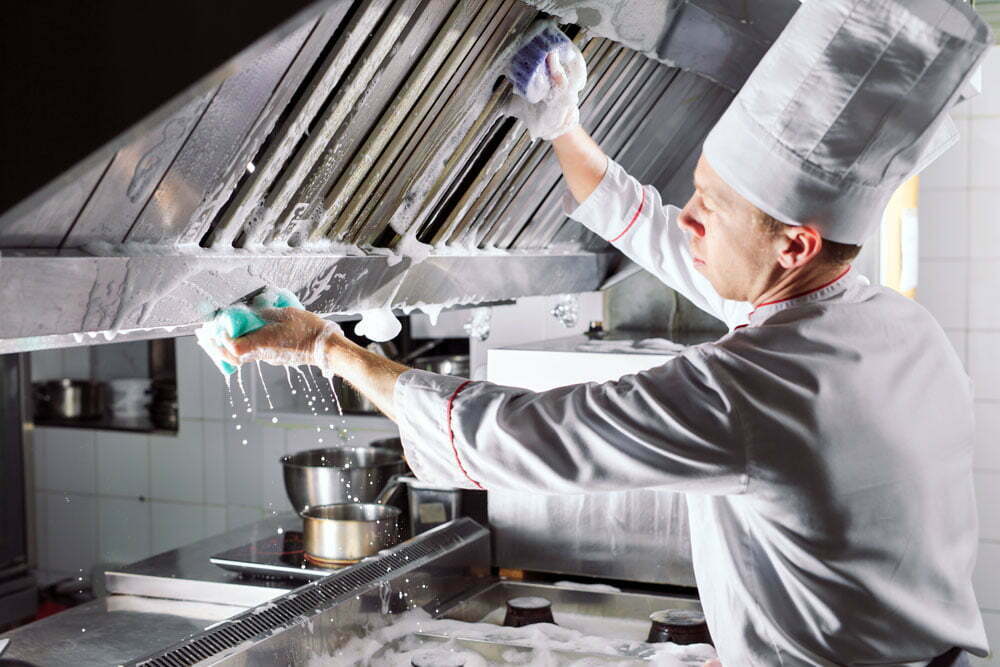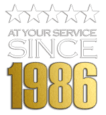
When it’s time to clean your commercial kitchen hood, who should you hire? Is it essential to work with a member of IKECA?
What Is IKECA?
IKECA (International Kitchen Exhaust Cleaning Association) was founded in 1989 by a small group of cleaning service specialists for kitchen hoods. All group members believe in the importance of proper and complete cleaning of restaurant hoods to prevent fire.
Within two years, the first professional association of the industry of commercial kitchen hood cleaning was born.
Since 2009, IKECA has joined ANSI (American National Standards Institute) as a developer of standards. IKECA now helps to develop standards related to cleaning, inspection, and maintenance of ventilation systems of commercial kitchens.
Today, IKECA has members worldwide.
How Important Is It to Properly Clean Commercial Hoods?
Is it important to clean commercial hoods according to specific standards? To answer this question, let’s study the case of a fire that took place in a kitchen restaurant in Boston in August 2007, where two firefighters lost their lives.
The incident investigation report revealed that the kitchen’s ventilation system was not properly cleaned, was poorly maintained, and needed repairs.
A company had cleaned the ventilation system in May of that year. However, the inquiry indicates that the system had not been thoroughly cleaned. In fact, a dish to collect grease falling from the ducts was found on one of the ovens.
Moreover, the ventilation system was not built according to industry standards, and a gap in the ducts was discovered. This gap allowed the fire to spread in the wall and to the roof.
The inadequate cleaning and maintenance of the ventilation system led to the accumulation of grease in the ducts, which caught fire. The fire then spread in the ventilation ducts and the roof. The fire had been burning for an hour before the employees noticed that something wasn’t right and evacuated the building.
This tragedy, which cost the lives of two people and injured many others, could have been avoided if the ventilation system had met industry standards and been properly cleaned.
Install an Industry-Standard Ventilation System
When you have a ventilation system that respects industry standards, it decreases the risk of fire.
In the previously cited example, the ventilation ducts were built with metal sheets that were badly welded and did not meet the standards of modern building codes. Unfortunately, this situation is often found in installations made by less skilled people or in older buildings with wooden structures (flammable materials).
Mr. Besal, president of IKECA in 2007, mentioned that proper maintenance of a ventilation system starts with the design and installation of the system. The goal is to eliminate all possible excuses not to clean every part of the system.
Why Work with a Member of IKECA for Cleaning?
Because each member of IKECA is committed to performing a complete cleaning of each commercial ventilation system. As opposed to other companies, which only clean the kitchen hood, the members of IKECA clean everything, from the kitchen hood to the ventilator on the roof and the ducts. Only this type of complete cleaning reduces the risk of a kitchen fire and ensures compliance with current fire standards. Insurance companies base their decision on these standards in the event of a claim for an incident.
The members of IKECA follow the standards of cleaning and inspection found in the NFPA 96, the International Mechanical Code, and International Fire Code. They follow the highest standards in the industry.
IKECA Training and Certifications
The employees of companies that are members of IKECA receive training and must pass exams to obtain their certifications.
The first certification is CECT (Certified Exhaust Cleaning Technician), or technician certified in ventilation cleaning. Each member of the team on the road must have a CECT certification.
Then, there is the CECS certification (Certified Exhaust Cleaning Specialist), or specialist certified in ventilation cleaning. This certification is for someone with a lot of experience, who is competent, and who oversees other team members. Each company member of IKECA must have at least one employee who has the CECS or CESI certification.
The CESI (Certified Exhaust System Inspector), or certified inspector in ventilation systems, is for inspectors who must verify the state of cleanliness of commercial cooking and ventilation systems. The inspector holding a CESI certification must be able to determine the type of system, identify its components and make a diagram of the system. He also must be able to assess the degree of cleanliness of the system, and then make a report to the client containing his recommendations for the future maintenance of the system.
All members of IKECA must be continuously trained to be able to renew their certifications. This allows each member to stay up-to-date on new developments in the industry and to increase their expertise.
Be Careful When Hiring a Cleaning Company
When you hire a contractor to clean your commercial hood system, ensure that both the company and its technicians have the IKECA certification.
Ask for a complete written list detailing the planned work, what will be cleaned, and how the work will be carried out. Make sure that the cleaning of the ventilator on the roof is included in the work.
If access doors must be installed to inspect and clean the system, the contractor will inform you. Some are even able to install the necessary UL approved doors for you. Then, according to the NFPA (National Fire Protection Association) standards, each access panel will have a sticker indicating the date of the last time it was opened and who performed the work.
The NFPA suggests inspecting the ventilation system regularly to determine the frequency of required cleaning. As a general rule, the more you cook, the more often the system must be cleaned. The regular cleaning of the grease filters and the use of the auto-cleaning functions, when they are installed, help to maintain the system.
After the inspection or the cleaning, the contractor will provide you with a performance certificate as a sticker attached on or near the hood. This sticker must contain the date of the work, the name of the company and the technician who performed the work, the parts of the system which were not cleaned, and the recommended date for the next cleaning.
After the work, the contractor will provide you with a detailed report of all mechanical issues, the sections that were not cleaned, the reason that these sections were not cleaned, accessibility issues, and any safety concerns.
It is imperative to have a system maintenance program that is adapted to how the system is used. Regularly cleaning the filters and the hood system eliminates unpleasant smells, improves air quality, and ensures the safety of the working environment, according to NFPA 96 standards.
Cadexair Service
When working with Cadexair to meet your commercial kitchen hood cleaning needs, you are assured that the work will be completed according to the highest industry standards. We are experts in cleaning ventilation systems for commercial kitchens.
As well as being a member of IKECA for more than 10 years, each of our technicians has their IKECA competency card, obtained through rigorous exams and continuous training.
We offer maintenance programs adapted to your needs, according to the type of cooking, kitchen activities, and the rules in effect.
At Cadexair, we have the expertise to create, install, maintain, and clean your commercial kitchen hood system. Cadexair has more than 35 years of experience, highly qualified personnel and strict maintenance service in compliance with current regulations.


